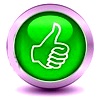A wiki is a website designed for collaborative editing, letting many people create, update, and organize content directly in a web browser.
They emphasize simplicity and openness — pages can be created or modified without special technical skills, and most maintain an edit history so revisions can be reviewed or reverted.
Main features
- **Collaborative editing:** Several contributors can edit pages, sometimes at the same time.
- **Edit history:** All edits are stored with timestamps and the author’s name or IP.
- **Interlinking:** Links between pages are simple to create, helping build connected content.
- **Lightweight markup:** Simple markup languages (such as WikiText or Markdown) are used to format pages.
- **Permission settings:** Some wikis are open to anyone; others limit edits to registered users or specific groups.
- **Discussion pages:** Talk or discussion pages let contributors debate edits and organization.
Common uses
- Community-driven knowledge bases (for example, Wikipedia)
- Project documentation and internal company knowledge repositories
- Cooperative writing and shared notes
- School and instructional projects
Advantages
- **Fast collaboration:** Multiple people can add and refine content quickly.
- **Openness:** Edit histories and talk pages reveal how content decisions were made.
- **Expandable:** They scale organically as users add more pages and topics.
Cons
- **Vandalism and false information:** Open contribution can result in deliberate or accidental misinformation.
- **Inconsistent quality:** Entries may vary in accuracy, style, and completeness.
- **Organizational issues:** Poor coordination or governance can cause content fragmentation and disputes.
Example
- **Wikipedia** — the largest example, maintained by the Wikimedia Foundation and contributed to by volunteers worldwide.






















